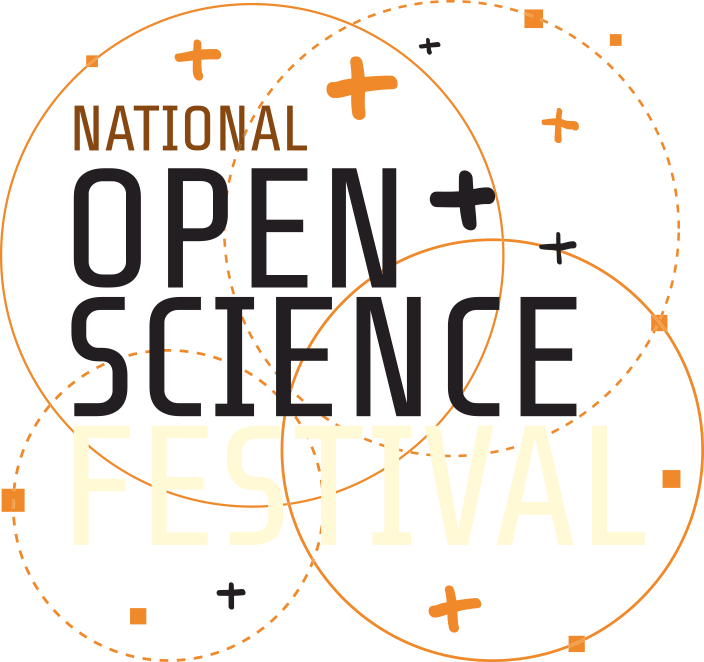Moving from the ‘why’ to the ‘how’
On August 31st, the 3rd edition of the Open Science Festival took place on the campus of Erasmus University in Rotterdam. Our board member Anna Roodhof attended this event to represent PhD candidates and to take note of any interesting developments in the field of Open Science.
This year's Open Science Festival had a different entrance point than previous editions, because this year the Regieorgaan (a term notoriously hard to translate, but it sort of means 'directory') Open Science NL has been established. This governance body is to determine how the allocated budget of €200 million (€20 million per year) is to be spent in the coming 10 years to facilitate the transition towards more open and participatory research practices in academia. Naturally, this year's Open Science Festival was focused more on the 'how' than on the 'why', but the presenters made sure to reiterate the importance of open science as well. In the opening address, the presenters invited all the attendees to share their main drivers for being involved with Open Science using Mentimeter.
Some of the responses included 'promoting diversity of knowledge and voices', 'reproducibility', 'transparency, collective benefit, and equity', 'good quality research', and 'it just makes sense'. These answers resonate with the Rector Magnificus of Erasmus University, Annelien Bredenoord.
Annelien Bredenoord: "Open science will increase the quality of science by reducing bias in data. It increases the impact and relevance of science, because there will be more voices and perspectives included, which increases epistemic justice. It also increases fairness and justice by including and expanding our results to a much larger audience."
But above all this, the main purpose of the Open Science Festival was to 'meet, share, inspire, and care'. This was facilitated by a wide range of interactive workshops, poster presentations during the lunch break, and 'Mingle and Meet' drinks afterwards.
The festival demonstrated how much is already being done to promote open science practices. To give you a quick impression of current developments around open science and offer you an idea of some of the tools that already exist, our board member Anna Roodhof summarized the most interesting and important points from the workshops our board she attended below. If you want to know more, the plenary sessions were recorded and can be accessed on the website of the Open Science FestivalThis website also contains a lot of information about the other workshops that were offered and who organized these workshops.
Beyond access: Making research discoverable, accessible, and inclusive
While there remains much to be improved, some helpful tools are already available to help anyone who wants to read up on a topic outside of their own expertise.
- The National Library of the Netherlands (Koninklijke Bibliotheek) has subscriptions to many scientific journals and a membership only costs €15 per year.
- Platforms such as Scholarcy summarize research articles (though a subscription does cost $9.99 per month or $90 per year). ChatGPT can also be used for this purpose by instructing it to summarize a text or explain a text in understandable language. The downside of ChatGPT is that this is not guaranteed to be completely accurate.
- The free platform Open Knowledge Maps offers a visual interface that makes it easier to explore and discover relevant scientific research. Users can contribute to the interface by creating maps, and at this moment there are already over 2 million maps spanning across all scientific disciplines. These maps provide an overview of research on a specific topic and help users identify relevant concepts. A nice bonus is that the platform integrates Open Access content (non-Open Access content is still shown, but you have to open it through your own university library to access it).
Practical tips for making qualitative data reusable
This workshop focused specifically on qualitative research. The established FAIR data principles (making your research Findable, Accessible, Interoperable, and Reusable) are more easily adoptable in quantitative research. In qualitative research, much of the valuable data is personal and its anonymization would therefore render the data useless. To help mitigate this problem, Dutch National Center of Expertise and Repository for Research Data (DANS) created a guidebook that gives an overview of both challenges and solutions pertaining to making qualitative data FAIR. They also provide a decision tree that offers researchers an overview of the different degrees in which qualitative can be FAIR, and which steps can be taken in different scenarios.
Recognition & rewards: Open & responsible research assessment
A persistent issue in practicing open science is that it often goes unrewarded. In this session a new assessment system that is being developed at Erasmus Institute of Management (ERIM) was presented. This system seeks to ensure the recognition and rewarding of open science practices. The system included seventeen badges that pertained to different open science practices, for example publishing in open access journals or publishing data in data repositories. The session was meant to gain input for what these badges should reward and what value should have.
The system, however, illicited some concerns in many participants, who were concerned that the focus on quantitative, rather than more context-based and descriptive, assessment would go against the Recognition & Rewards (R&R) programme, which prioritizes quality over quantity and aims to balance the currently highly individualized forms of assessments by also integrating collective achievements and team performance. The participants stressed that the assessment system proposed by Erasmus University could have adverse effects on the assessment of researchers by disproportionally focusing on the number of badges they have been awarded.
A relevant and interesting discussion followed; the main message being a reiteration of what the R&R programme is really about: assessment is performative, so before implementing any new system, its potential consequences on academic career paths and profiles for academics should be thoroughly considered.


